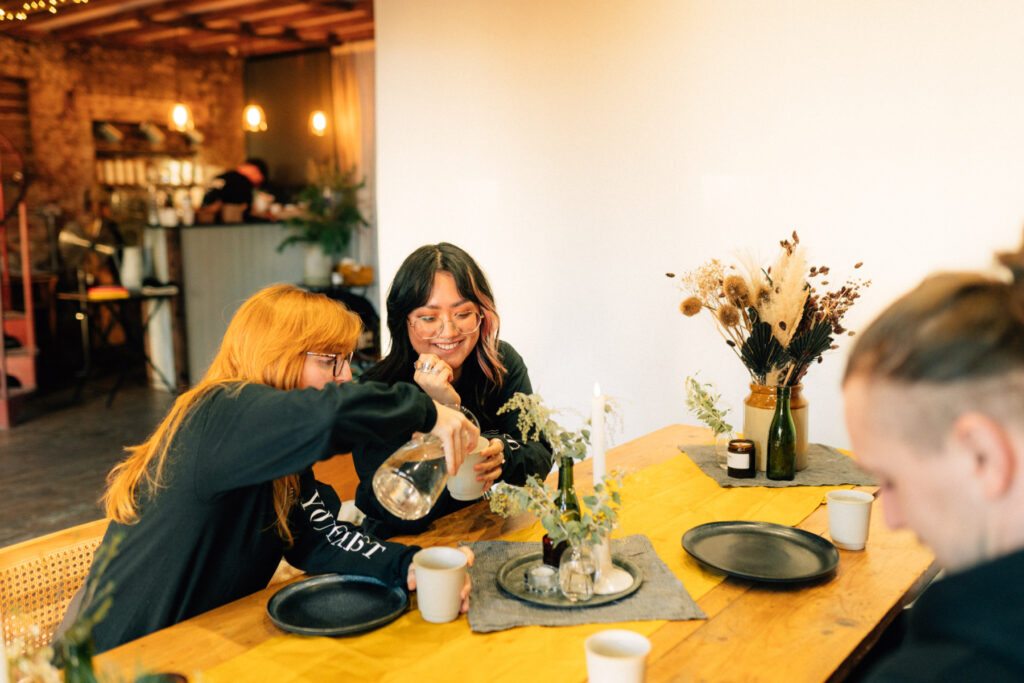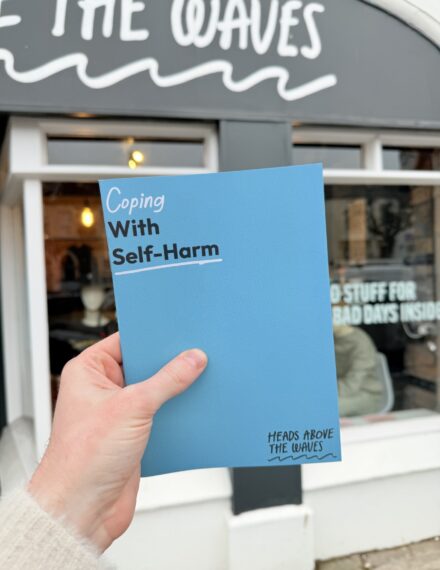How to support your pals
Knowing how to support a friend who’s struggling with their mental health is such an important skill. So let’s break down a handful of useful things to keep in mind when helping out a pal who’s struggling! This of course isn’t the only way to help your pals, but it’s a few good ideas in general!
(These ideas come from one of our talks that we can deliver to your school/uni/workplace! If you’d like to get into this in a bit more detail, get in touch! )
Let’s start by thinking about this a bit differently.
How would you make life terrible for your friends?
Sometimes a useful way to approach an issue is to turn it on its head. So if we want to help make our friends life better, let’s think about how we’d make their life WORSE, and then do the *opposite* of that. So for example, if you’d make their life worse by ignoring their calls, the way to help them is to actually answer the phone when they call. This way of approaching a problem is really useful in a bunch of settings. So give it a go now! Try to think of how you’d make life worse for your friends (and then make sure you do the opposite, in order to make life better!)
Call it out & give it a name
Just the phrase “I think you’re going through something, and I want to help you” can be so powerful. It might be that your friend doesn’t know how to talk about what they’re going through. So if you notice something’s up, and you want to help your pal,
A lot of the time, people can be worried about saying or doing the wrong thing, so they end up not saying or doing anything. And that can leave someone who’s already struggling feeling more alienated. So reach out, give it a name. For example: “I think you’re depressed right now. Am I right in thinking that?“
By verifying if you’ve got it right, it gives your friend a chance to confirm it, but it also leaves it open for them to share what they’re actually going through, if it’s something else.
Helped, Heard, Held
This has fast become one of our favourite tips for any conversation! When someone comes to you with a problem, it might be helpful to frame the conversation by asking whether they’d like to be Helped, Heard, or Held.
Helped
Do they want you to come up with solutions? Do they need you to physically do something for them? It might be that they want someone to help lighten the load, and help them navigate the situation they’re in.
Heard
Do they actually just want you to listen to them? Sometimes you don’t need anyone to do anything, but you just need someone to listen to you. Listen, without judgement, and let them explain and explore what’s going on with them. Maybe ask some questions, but spend more time listening!
Held
Sometimes there’s something just super helpful about having someone hold you. Or – to use a good Welsh word – have a good cwtch. That might be all they need! But it also might be all you *can* do about a rubbish situation.
By establishing what they’re looking to get from talking to you from the beginning, it makes it way more likely that they’ll get what they’re looking for, and you can feel more confident in what you can do to help them.
Prepare an excuse for connection
People need other people. When we’re really struggling, our minds can convince us that we need to stay away from others. Or it might even be the case that your friend who’s struggling just doesn’t have the spoons to get out and socialise.
So if you want to help them out, you could prepare an excuse for connection that doesn’t require a lot of energy. Something simple like “Hey, can I come and make you dinner? I’ve got a new recipe I wanna try, and would love to share it with you”.
Or even something like: “Can we watch a movie together? I’ve always wanted to watch this. You don’t have to talk or explain how you’re feeling, let’s just hang out”.
I’m talking about just something that’s a way for you to spend time together, so they can feel your presence and your love for them, without them having to change, fix or explain anything.

A choice of 3 things
If you’ve established that they want to be helped, and you’re trying to give them suggestions of stuff that might help, rather than just saying “so what do you want to do?” it might be helpful to give them an option of 3 things to try.
This still gives them an element of control in their wellbeing, while not overwhelming them with infinite choices.
Look after yourself too
I think it’s only right that we end this piece with a reminder that you can’t pour from an empty cup. So look after your own mental health. And remember that it’s okay to not have the capacity to support someone else. If someone comes to you when they’re struggling, but you’re also not in a great place yourself, it’s ok to be honest about this. But that’s also a great chance to help them find someone else who might be able to help them (or even help you both!).
So make sure you’re doing the things that help keep your head above the waves too.
If you found this helpful
Then please pick up some of our merch with a message, so we’re able to keep on creating resources & sharing them for free on our website and our social media!
Here’s some of our favourite picks:
If you found this post helpful, check out some more of our Straight Up Advice.
see more


